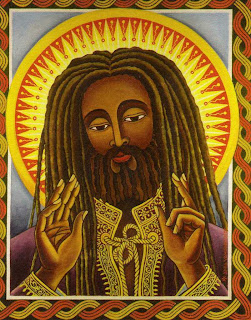
Who was this itinerant rabbi? We know he lived and traveled and taught in the area around of the Sea of Galilee region early in the first century C.E. We infer that he went to Jerusalem during the second or third year of his ministry and met a violent death there.
But what did he actually teach, and what did he actually believe? We can never really know for sure, but 20th-century studies which worked to identify and analyze the sources of the gospels have done a great deal to help answer those questions within a reasonable degree of certainty.
Among the books generated by these studies that are accessible to the lay person, I've found Burton Macks "The Lost Gospel Q: The Book of Q and Christian Origins," the most informative and historically rigorous among the ones I've read.
Scholars had already surmised for over 100 years that Matthew and Luke had one source in common (other than the much-earlier Gospel of Mark which they also shared), and that this source consisted solely of teachings, and contained no historical or biographical details. This is the "sayings gospel" Q, which 20th-century theologians, mounting a massive group effort, painstakingly abstracted and reconstructed from the Bible's first three gospels.
One thing I learned from Mack's history of Q is that there were no Pharisees active among the Jews of Galilee at the time of Yeshu, so all of Jesus's gospel diatribes against that sect must have been added long after his death, by followers of Yeshu whom the Pharisees considered apostates or deviants from orthodoxy. The contents of the original version of Q, those parts that everyone involved in the various studies was able to agree upon, are actually quite short.
Two themes predominate in this extremely condensed version of what we may with some confidence conclude was the actual message conveyed by the historical figure Yeshu Ben Yusuf. The first is the requirement that any who would follow the way lead lives of utter simplicity, which is represented as conferring freedom and joy on any who would practice it. The other is an uncompromising and radical plea for absolute non-violence.
Where did the emphasis on these ideals come from? They're nothing like what's put forward in most of the Hebrew Bible. But as Burton Mack points out, in the first century Galilee was a long way from Jersusalem, whose temple authorities had little influence there. It was a multi-ethnic society, heavily influenced by the thought of the Greeks who had recently ruled and built cities in much of the region in the wake of Alexander, as the Seleucid monarchs. Yeshu, in some ways, exhibits the character of a Greek cynic philosopher as much as he does that of a traditional rabbi,* which is what makes the Book of Q and its subsequent developments, including Christianity, such radical departures from the past.
*See Mack, pages 114-115.
No comments:
Post a Comment